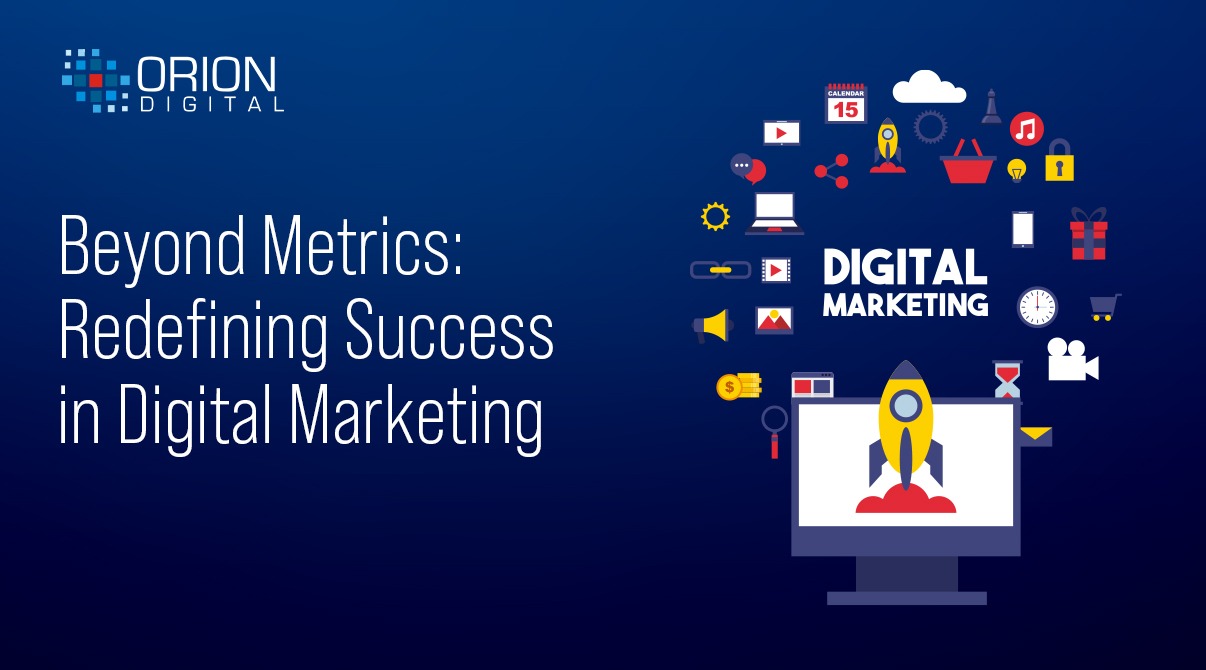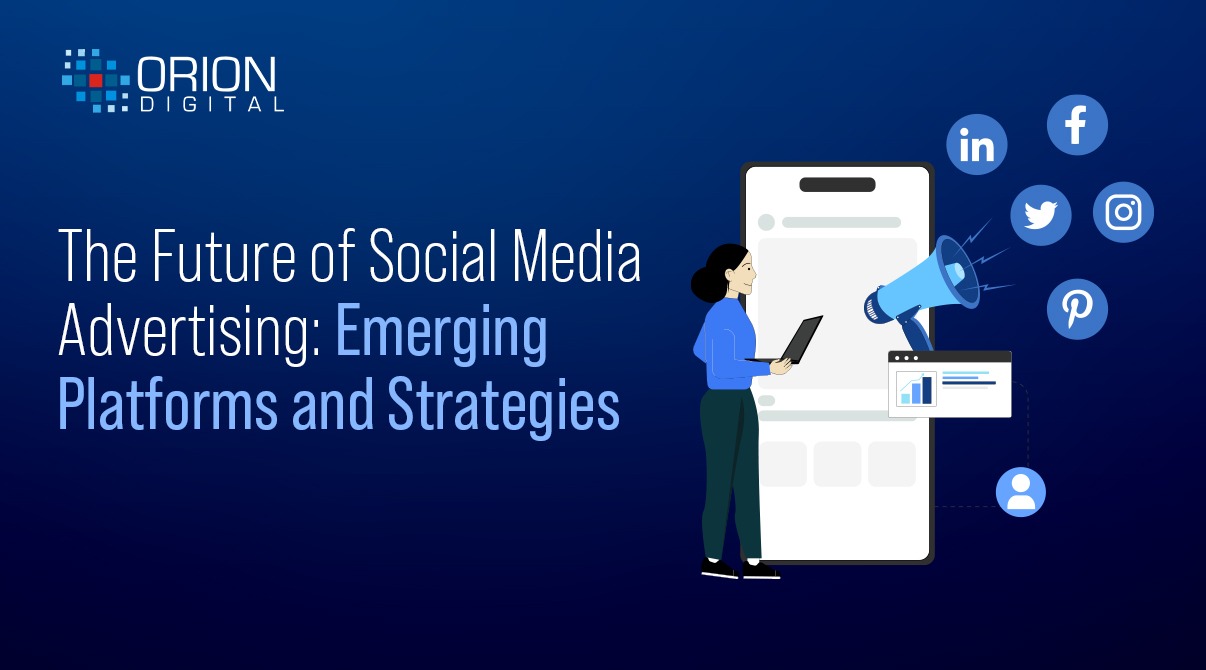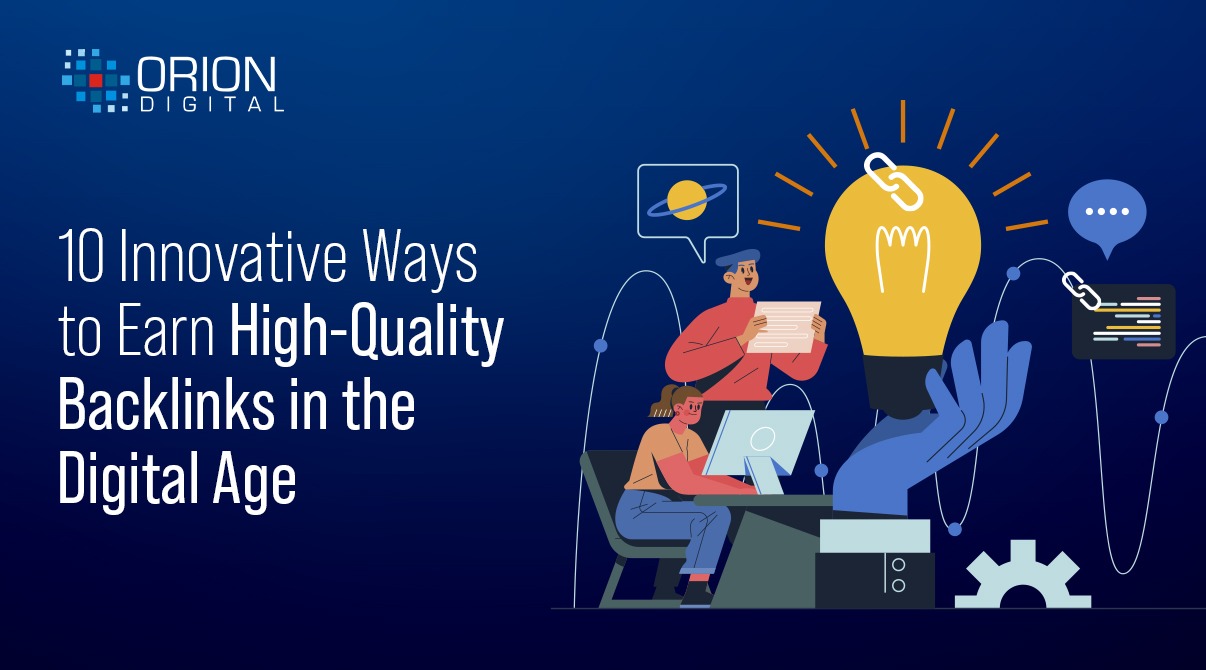
Beyond Metrics: Redefining Success in Digital Marketing
- Naveen N
- April 30, 2024
- Digital Marketing
- Digital Marketing, marketing
- 0 Comments
It’s easy to get caught up in the numbers game in this social media age. Likes, shares, clicks, and conversions often take center stage, leading marketers to focus on metrics as the ultimate measure of success. However, at Orion Digital, we believe that true success in digital marketing goes beyond these surface-level metrics. In this blog post, we’ll explore how to redefine success in your digital marketing efforts and create a meaningful, lasting impact.
The Limitations of Vanity Metrics
Vanity metrics, such as likes, shares, and follower counts, can be misleading. While they may provide a temporary ego boost, they don’t always translate into tangible business outcomes. It’s crucial to understand that these metrics alone do not paint a complete picture of your marketing effectiveness.
The Danger of Chasing Numbers
When marketers become obsessed with vanity metrics, they risk losing sight of their true goals. Chasing numbers can lead to tactics that prioritize short-term gains over long-term strategies, such as clickbait content or paid followers. These practices may artificially inflate metrics but fail to deliver genuine value to your audience and your brand.
Looking Beyond the Surface
To redefine success in digital marketing, we must look beyond the surface-level metrics. Instead of focusing solely on likes and shares, consider metrics that directly impact your business objectives, such as:
- Engagement rate: Measure the quality of interactions with your content, not just the quantity.
- Time on site: Evaluate how long users spend engaging with your content, indicating their interest and the value they derive from it.
- Conversion rate: Track the percentage of visitors who take desired actions, such as making a purchase or filling out a form.
By shifting your focus to these meaningful metrics, you can gain a deeper understanding of your audience and the effectiveness of your marketing efforts.
Aligning Metrics with Business Objectives
To truly redefine success in digital marketing, it’s essential to align your metrics with your overall business objectives. Start by clearly defining your goals and identifying the key performance indicators (KPIs) that directly contribute to those goals.
Setting SMART Goals
Use the SMART framework to set specific, measurable, achievable, relevant, and time-bound goals. For example, instead of aiming for a vague goal like “increase brand awareness,” set a SMART goal such as “increase website traffic by 20% within the next quarter through targeted content marketing and SEO efforts.”
Mapping Metrics to Objectives
Once you have defined your SMART goals, map the relevant metrics to each objective. This will help you track progress and make data-driven decisions. For instance, if your goal is to increase lead generation, track metrics such as form submissions, email sign-ups, and conversion rates from landing pages.
Regularly Reviewing and Adjusting
As your digital marketing campaigns progress, regularly review your metrics and assess their alignment with your business objectives. Be prepared to adjust your strategies and tactics based on the insights gained from your data analysis. Continuous optimization is key to achieving long-term success.
Focusing on Customer Experience
In the pursuit of redefining success, it’s crucial to prioritize customer experience. Your digital marketing efforts should aim to provide value, solve problems, and create positive interactions with your brand.
Understanding Your Audience
To deliver exceptional customer experiences, you must deeply understand your target audience. Conduct market research, analyze customer feedback, and engage in social listening to gain insights into their needs, preferences, and pain points. Use this knowledge to create personalized and relevant content that resonates with your audience.
Prioritizing User Experience (UX)
A seamless and intuitive user experience is essential for digital marketing success. Ensure that your website and digital assets are user-friendly, mobile-responsive, and optimized for speed. Eliminate friction points and make it easy for users to navigate and engage with your content. A positive UX can lead to higher engagement, longer session durations, and increased conversions.
Measuring Customer Satisfaction
To gauge the effectiveness of your customer experience efforts, measure metrics such as:
- Net Promoter Score (NPS): Assess customer loyalty and the likelihood of recommending your brand.
- Customer Satisfaction Score (CSAT): Evaluate customer satisfaction with specific interactions or overall experience.
- Customer Lifetime Value (CLV): Measure the total value a customer brings to your business over their entire relationship with your brand.
By prioritizing customer experience and measuring these metrics, you can build lasting relationships with your audience and drive long-term success.
Embracing a Holistic Approach
Redefining success in digital marketing requires a holistic approach that goes beyond individual metrics. It involves considering the bigger picture and understanding how various elements of your marketing strategy work together to achieve your goals.
Integration and Collaboration
Foster integration and collaboration among your marketing teams, including social media marketing, content, SEO, and paid advertising. Encourage cross-functional communication and alignment to ensure a consistent brand message and customer experience across all touchpoints.
Continuous Learning and Adaptation
The digital horizon of marketing is constantly evolving, and what works today may not work tomorrow. Develop a mindset of continuous learning and adaptation. Stay updated with the latest industry trends, best practices, and technological advancements. Be willing to experiment, test new strategies, and pivot when necessary.
Balancing Short-Term and Long-Term Goals
While it’s important to track and optimize short-term metrics, don’t neglect your long-term goals. Strike a balance between achieving immediate results and building a sustainable, long-term marketing strategy. Invest in initiatives that may not yield instant gratification but contribute to brand equity, customer loyalty, and overall business growth.
Conclusion
Redefining success in digital marketing requires a shift in mindset. It means looking beyond vanity metrics and focusing on meaningful metrics that align with your business objectives. By prioritizing customer experience, adopting a holistic approach, and continuously learning and adapting, you can create digital marketing campaigns that drive genuine value and long-term success.
At Orion Digital, we understand the importance of redefining success in digital marketing. Our team of experts is dedicated to helping businesses like yours navigate the complexities of the digital landscape and achieve their goals. Contact us today to learn how we can help you redefine success and take your digital marketing efforts to the next level.




